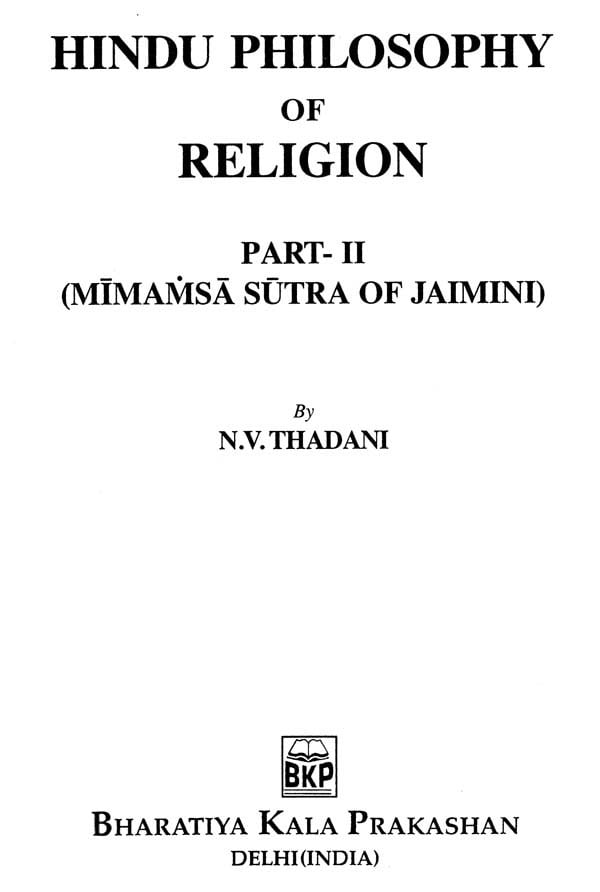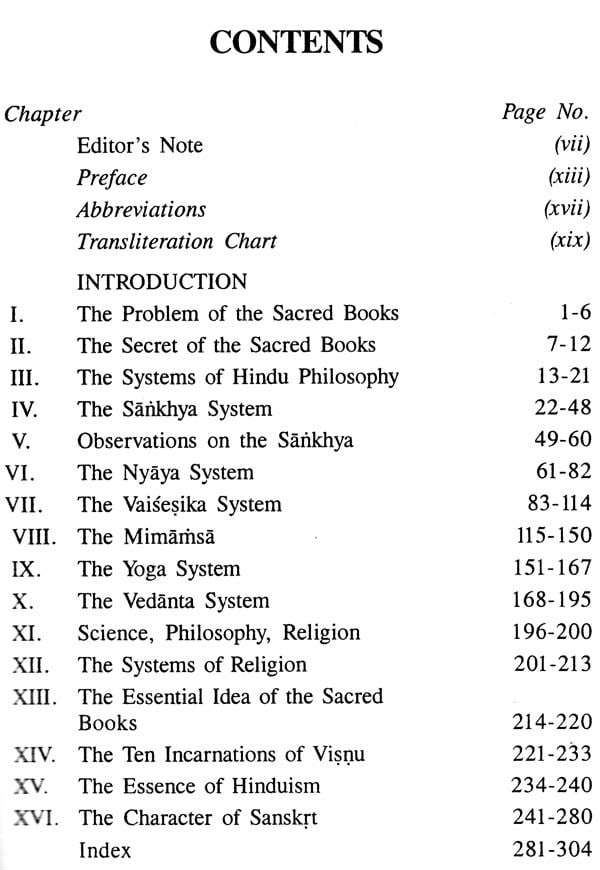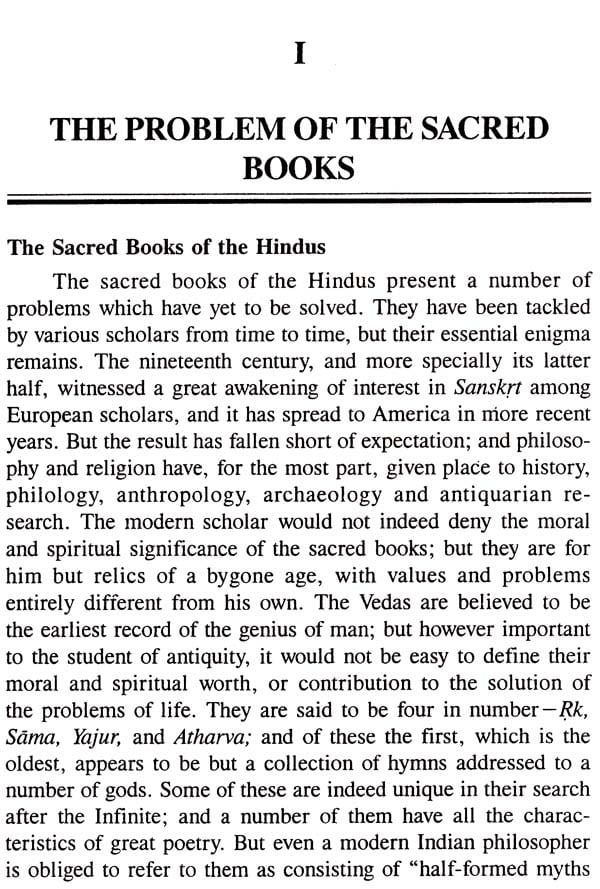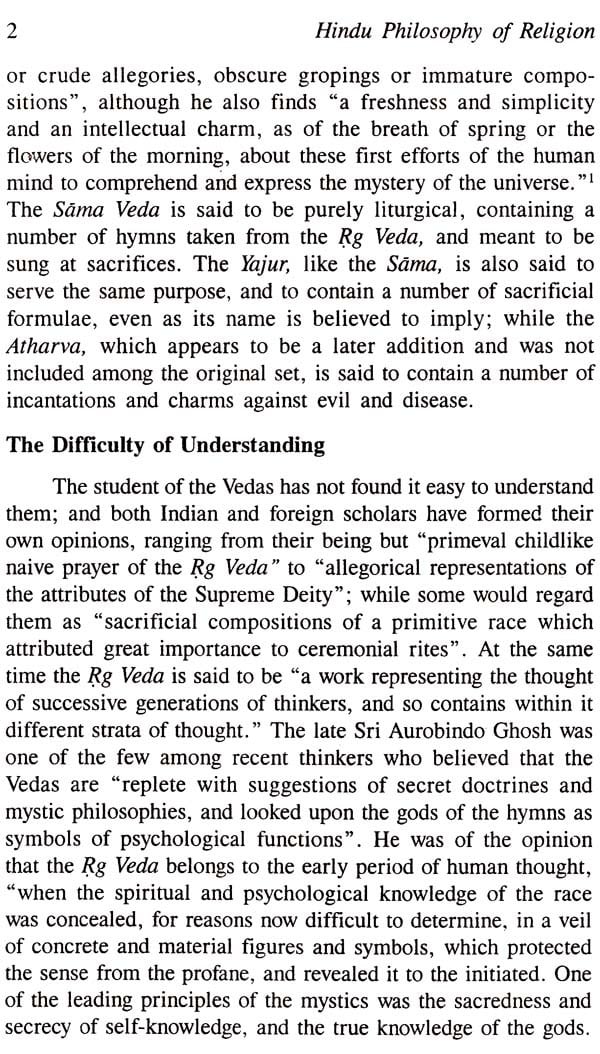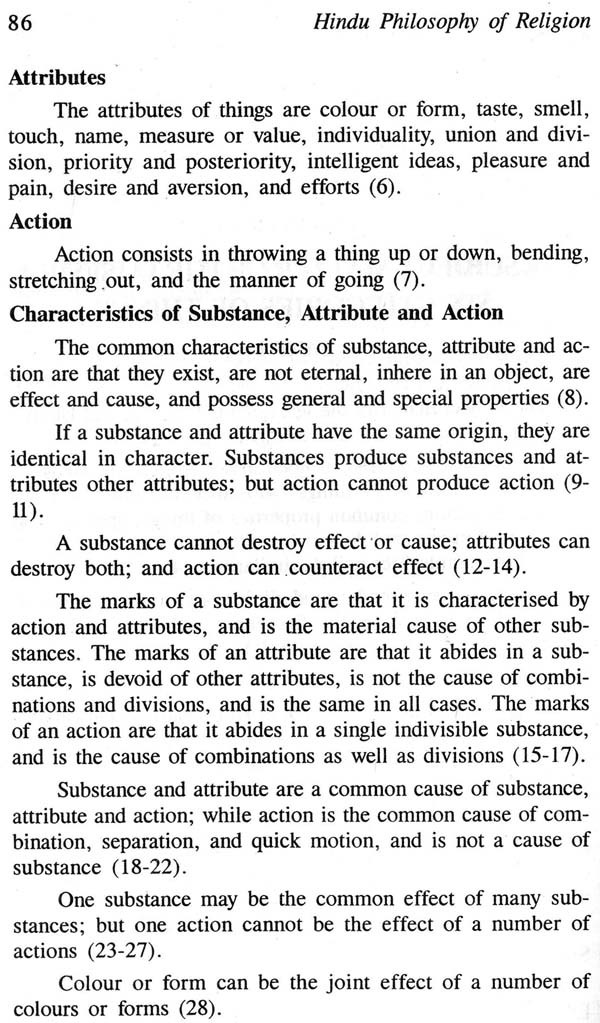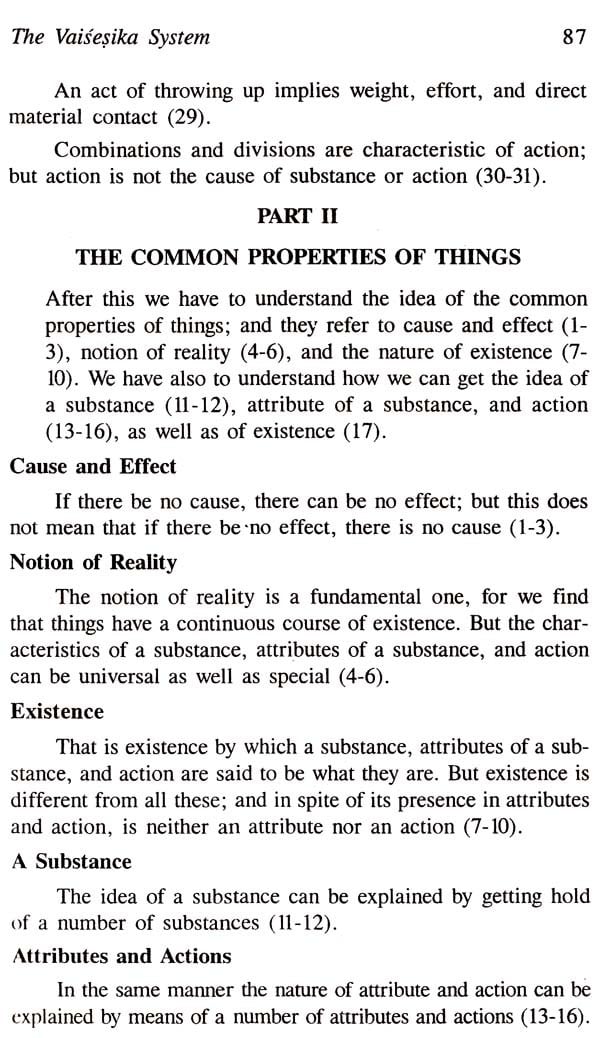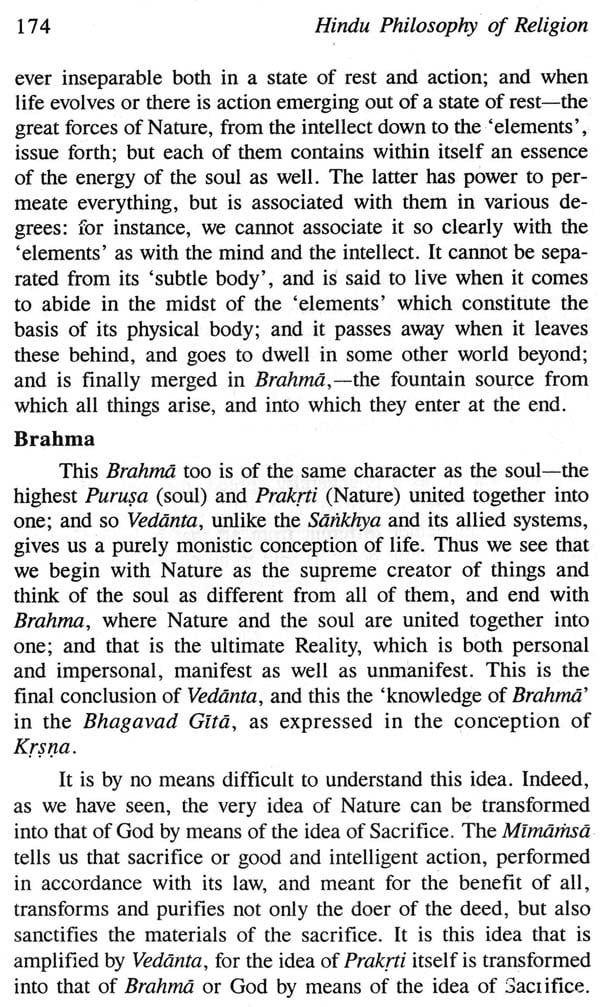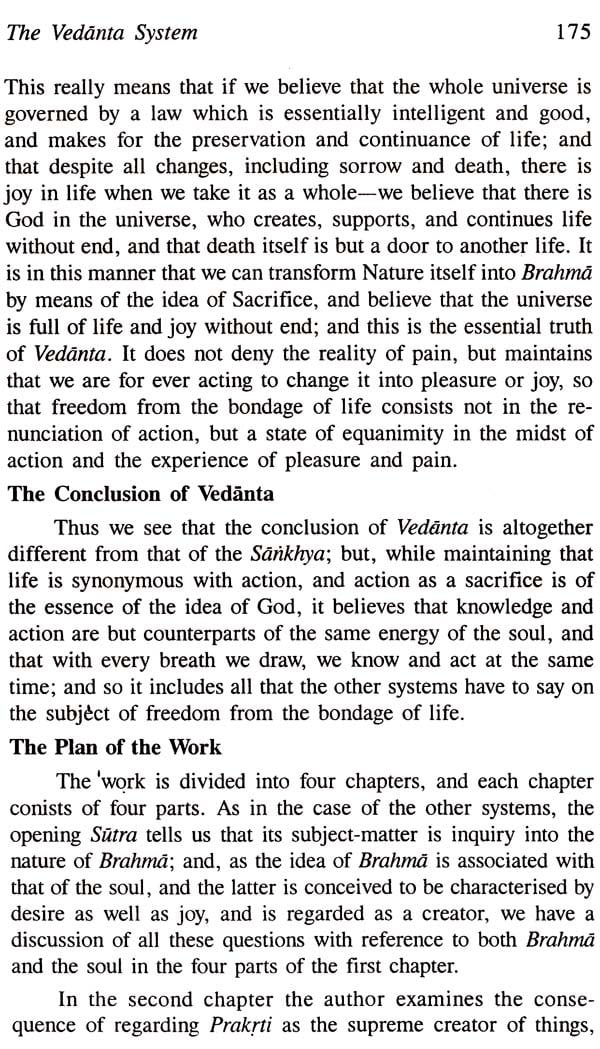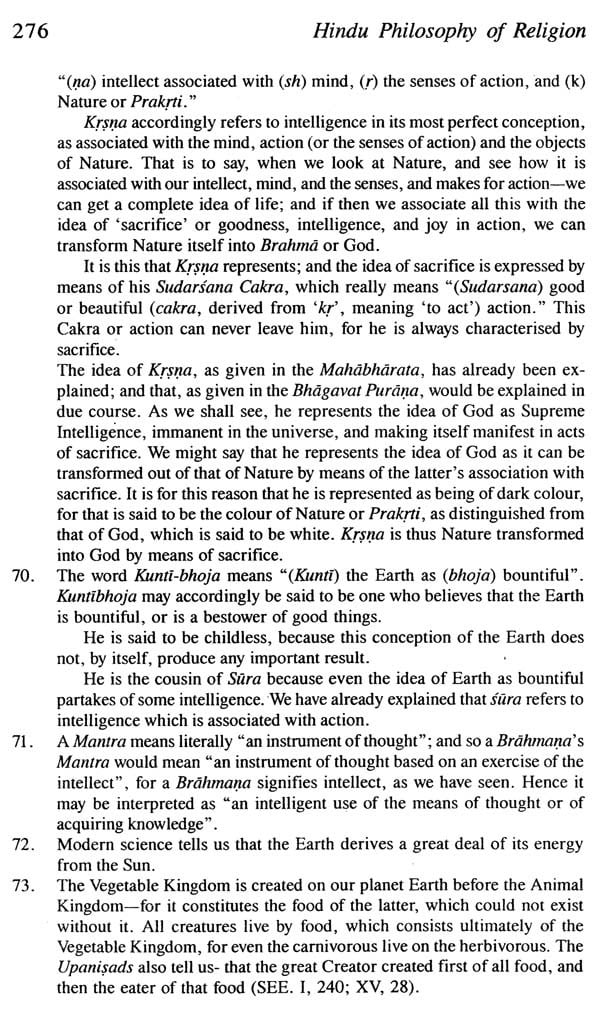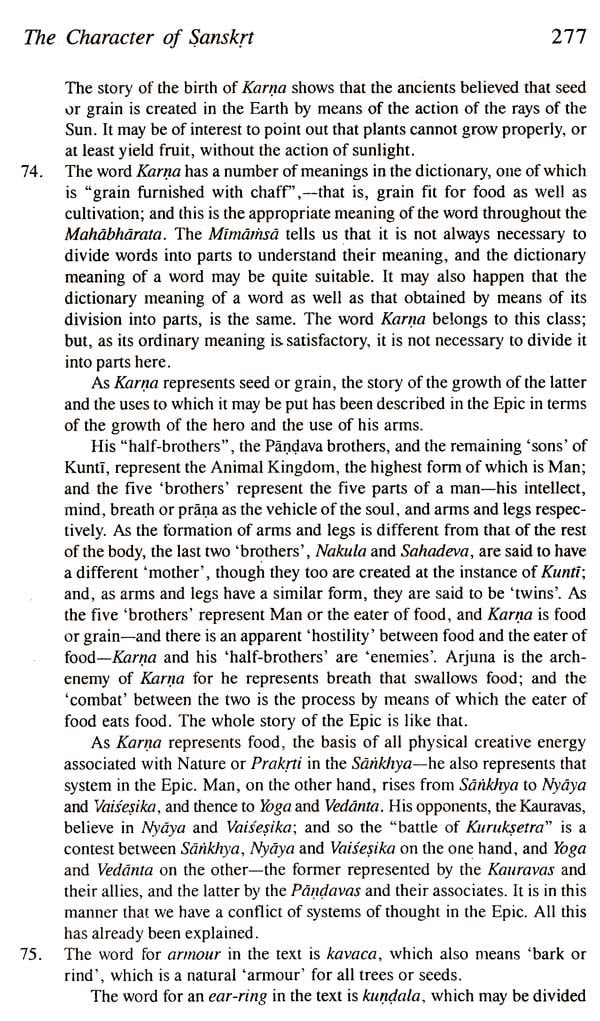
Hindu Philosophy of Religion- Mimamsa Sutra of Jaimini (Part-2)
Book Specification
| Item Code: | AZE724 |
| Author: | N.V. Thandani |
| Publisher: | BHARATIYA KALA PRAKASHAN |
| Language: | ENGLISH |
| Edition: | 2007 |
| ISBN: | 9788180901669 |
| Pages: | 302 |
| Cover: | HARDCOVER |
| Other Details | 9.00x6.00 |
| Weight | 500 gm |
Book Description
The Sankhya system of Philosophy and the observations on the Sankhya have also been discussed. The Nyaya sys tem, Vaiseşika system, Mimamsa, the Yoga system also carroborate the Phi losophy of Hindu Religion.
This book also speaks about the Vedanta system and the ten Incarnations of Visnu and explains the Philosophy of Hindu Religion therewith.
The Vedas, as the Mimämsä tells us, contain an account of the laws of Nature. The Upanisads are said to be an exposition of the secret doctrine of the Vedas.
On the whole, this book explains the Hindu Philosophy of Religion touching about every aspect. The language and the presentation of the book will Artainly Wake it useful and readable.
The present work is an attempt at a simple, but a reasonably accurate, translation of the original text. A purely literal rendering of a work, even in a modern language, would make difficult reading; and an English version of so simple a book as the Bhagavad Gita has often to deviate from the original idiom to be understood. This difficulty is greatly increased in the case of the Sutras of Hindu Philosophy; for they are not short, pithy, and independent utterances of great truths, as is commonly believed-but brief, exact, and clearly defined statements of great ideas, which are closely knit together and need to be properly understood. It would have been possible to translate each Sutra literally and separately; but, while that may have been more exact and accurate, it would have broken up the unity of thought and continuity of expression of the work as a whole, and that was perhaps even more important. It was accordingly necessary to steer a middle course, and that has been attempted in the present work.
**Contents and Sample Pages**
